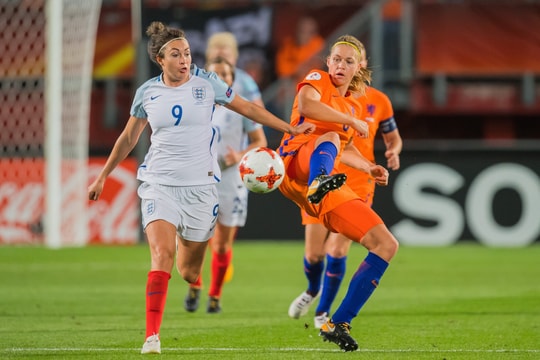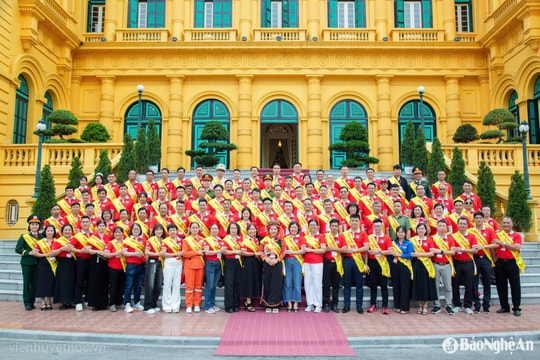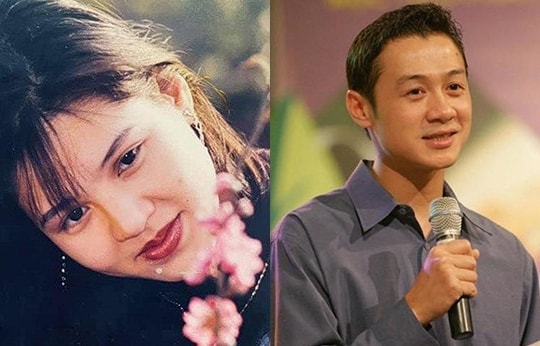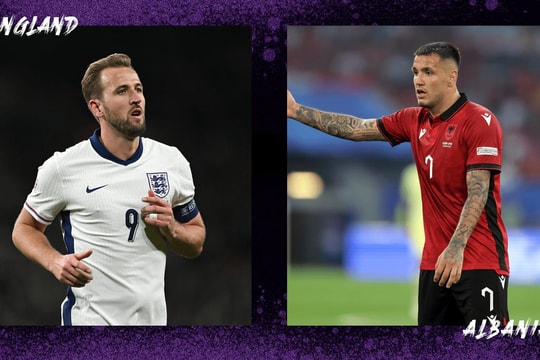England's failure at Euro 2016: The dark side of tabloid media
The flattery habit of the domestic media plays an important part in why the England team never succeeds in major tournaments, the most recent legacy of which is Euro 2016.
It would be redundant to mention how gossipy the British media is. In a country that invented legendary concepts like tabloid truth a few decades ago, with a way of working that is no different from today's social networks, profit and business results are always the guiding principles. Of course, there are still reputable newspapers like the Guardian or the Times, but they are few in the jungle of the Daily Mail, The Sun, Daily Mirror...
The level of reporting in the British press is so high that former England coach Sven-Goran Eriksson once fell for two "Arab tycoons" who were disguised by reporters. Then, his private life, such as who he had an affair with and which motel he went to, was exposed in the press. After that incident, the Swedish strategist who won the Serie A with Lazio had to sadly pack up and leave.
 |
Sven Eriksson was once a victim of two reporters posing as Arab princes who tricked him into giving him all the information he needed. |
If coaches are like that, English players are even more miserable when they have to practice their profession in such a scrutinizing environment. David de Gea of Man Utd once lamented: "Every time I go out on the field, I always have to be aware that I am in the center of 85 live television cameras everywhere. A small, unintentional movement is enough to make me a tasty morsel in tomorrow's newspaper." Recently, German coach Joachim Low also became a victim of that type of entertainment journalism.
In such a situation, English footballers easily develop great illusions about themselves. You just need to play well in one match and you will be lifted up to the sky. But play poorly in one match and you will be pushed down to the mud. A red card is too normal in the world of football. But David Beckham, a contemporary cultural icon in 1998, became the sinner of the whole of England because of this card at the World Cup. It took extraordinary courage for him to overcome that storm to continue to rise to have a successful career.
However, people like Beckham are rare, while people like Federico Macheda, Adnan Januzaj, Diego Forlan, Tom Ince, Wilfried Zaha... are countless. They are all victims of the entertainment media industry in the foggy country.
Consequences for England
Every time a major tournament takes place, regardless of whether it is before, during or after the tournament for a month or even a year, the England team is at risk of becoming the “prey” of the paparazzi. And so, instead of focusing completely on their skills, the England players are constantly distracted. And the reasons are varied, from which hotel they booked, where, how much it cost, which famous people have stayed there, which place was the setting for an impressionist painting...
But that is still a small amount. The media will find out at all costs to report on the list of beauties who followed their husbands and lovers to the competition. Are they allowed into the training area? For how long? Are they allowed to stay the night before the competition or are they sent home? How are they dressed, covered or exposed?...
 |
What the wives and girlfriends of Rooney, Vardy, Hart wear, where they go out, and where they shop is an important topic that distracts the English players when entering a major tournament that requires their utmost concentration. |
So, instead of playing with a formation, who goes up front, who goes back to defend, how to operate the tactics, the English players are said to be caught up in endless useless stories. In the book Football – The Devil Takes – The Life of Alex Ferguson, writer Patrick Barclay recounts that the former Man Utd coach had a good relationship with the media when he first arrived in England in 1986. But as time went on, along with the decline in the quality of information, Ferguson became increasingly hostile to journalists. He once chased a reporter wearing ripped jeans into the press conference room.
The following excerpt shows how harsh Ferguson's attitude towards the British media was: "Ferguson did not hesitate to declare war on the press, after about 22 years of maintaining politeness in Aberdeen - such as giving reporters a lift from the stadium to the city centre. In May 2002, the day before Arsenal traveled to Old Trafford to "borrow" the Championship Cup, a reporter from The Sun asked a question about Juan Sebastian Veron's first season at Man Utd, when Ferguson had not yet warmed up in the press conference room. He thought Veron's performance was not worth the money.
Ferguson immediately threw the answer back to the reporter. He was furious, shouted and ended the press conference before it even started: "Get out now. I don't want to talk to you anymore. Veron is a good player. You guys are all stupid as cows!".
Ferguson’s dislike of the press is not for nothing. He grew up as a footballer in Scotland, when the person you were most likely to be friends with was a journalist. Over the years, while he maintained friendships with older journalists, especially the legendary Hugh McIllvanney of The Observer and later of the Sunday Times, the changes in the press increasingly made him disdainful.
These reactions are not necessarily overblown, but the tendency to fabricate and exaggerate has perverted some traditional newspapers. Evidence of this is the wiretapping scandals, some of which involved Sven-Goran Eriksson and the unfortunate chairman of the Football Association Lord Triesman, who resigned in May 2010 after being overheard making unwise comments about the 2018 World Cup bid. Ferguson once told me: 'Those people don't deserve to be called journalists. What kind of journalist would do something like that?'
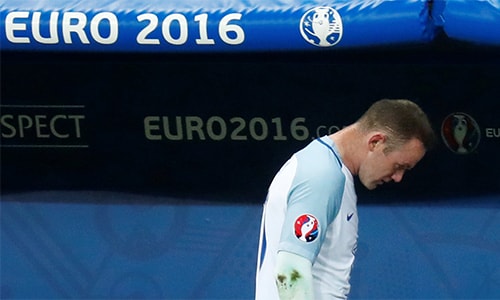 |
The failure at Euro 2016 was actually just a repetition of an old habit - England always played poorly at major tournaments, where they received great attention and expectations but had to bow out. Photo: Reuters. |
It is no coincidence that Ferguson used to ban players from reading newspapers and using mobile phones (also to check the news) before every important match at Man Utd. And it is no coincidence that England's only World Cup championship came in 1966, when the media in this country still maintained its orthodoxy and kindness.
The media, after all, are just doing their job, and that is part of the giant machine that any national football industry needs. But between the arms race for good news and the consideration of whether that news is good or bad for the character, the former is more important in England. And that is a big reason why England have not been able to advance beyond the semi-finals of a World Cup or Euro for 20 years.
According to VNE
| RELATED NEWS |
|---|


.png)
